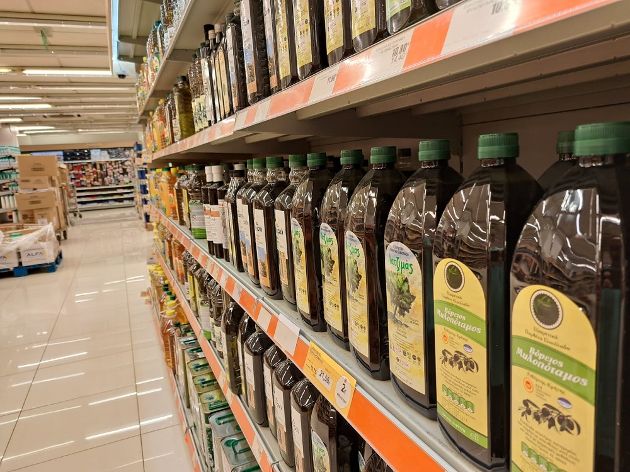Key factors in cost-of-living crisis not kept in check

The cost-of-living issue is beginning to bite the Greek government. After nearly two years of rising prices, the public has overwhelmingly placed it at the top of their concerns, essentially showing disapproval of the measures taken to combat inflation.
The severity of the issue over the last few weeks has also been highlighted by data that demostrates the domestic nature of the problem, undermining the argument that persistent price hikes are primarily an imported phenomenon – a line that has been parroted by the government-friendly media in an attempt to ringfence the PM and his policy choices.
As energy prices started to moderate at the end of 2022 and for most of 2023, Greece’s headline inflation dropped to 3 pct in November last year, from a high of 12 pct in September 2022.
However, food and non-alcoholic beverages climbed in November last year by six percentage points above the headline number to 9 pct. The Competition Commission found last week that baby formula in Greece is up to 213 pct more expensive than in the EU.
For the second time in so many months, Prime Minister Kyriakos Mitsotakis had to send a warning to multinational companies that Greece is not a "banana republic" and cannot be treated as such in their pricing practices. This seemed a rather odd remark considering Mitsotakis is in his fifth year in office and probably would not take pride in the insinuation that he has been leading a banana republic can be exploited in such a way.
The full effect of the challenge for Greek households is captured when disposable income is factored in. Based on a study by the Research Institute of Retail Consumer Goods (IELKA), the typical Greek basket of 39 goods is cheaper than France, Italy, Spain and the UK in nominal terms, but the picture changes once purchasing power is included. A typical example is Portugal, where the same basket is 3 pct more expensive, but wages in Portugal are 23 pct higher than Greece. The basket in Spain is 0.37 pct more expensive, though the average wage in Spain based on the OECD is over 39,000, compared to circa 24,000 in Greece.
Another study that attracted attention last week was the report carried out by business information specialists ICAP CRIF regarding profitability champions in Greece for 2022.
The study finds that companies involved in fuel saw their EBITDA rise by some 237 pct in 2022 to 2.94 billion euros, from 871.3 million in 2021. Companies in the food sector saw their EBITDA increase by more than 50 pct to 718.5 million euros, while metal products and construction experienced an EBITDA rise of nearly 81 pct to 815.3 million euros.
In terms of turnover, sales of fuel products were up by 65 pct to 25.93 billion euros. Food sales were up by 15 pct to 5.53 billion euros and metals products and construction nearly saw their sales double, up by 94 pct, to 8.37 billion euros.
Supermarkets had a bumper year in sales with revenues in 2022 up by almost 5 pct to 10.18 billion euros.
Banks in 2022 also showed an interesting financial composition. Their total sales of 8.1 billion euros accounted for just over 5 pct of the top 500 profitable companies in Greece, however, their pre-tax profits of 5.09 billion euros according to the study represented 25.5 pct of total pre-tax profits of the companies in scope.
It is apparent that the data points to business and profitability in Greece being unaffected by the inflation wave of 2022, with companies managing to pass on to consumers most of their input costs, with their profits remaining strong.
The latest data compounds previous research by international organisations that the impact of “greedflation” is the main contributing factor in the persistent price hikes, with little effects from the cost of labour, or domestic demand.
The Greek government has been very restrained in pursuing excess profits in sectors that have benefited from the price hikes and distortions in the Greek retail market. This contrasts with the public mood. In recent opinion polls, more than 60 pct of respondents have placed inflation as their primary worry and more than half think Greece is heading in the wrong direction.
 Podcast - Whose property? Greece’s housing challenges
Podcast - Whose property? Greece’s housing challenges Can the Green Transition be just?
Can the Green Transition be just? Where is Greek growth coming from?
Where is Greek growth coming from? Bravo, Bank of Greece
Bravo, Bank of Greece